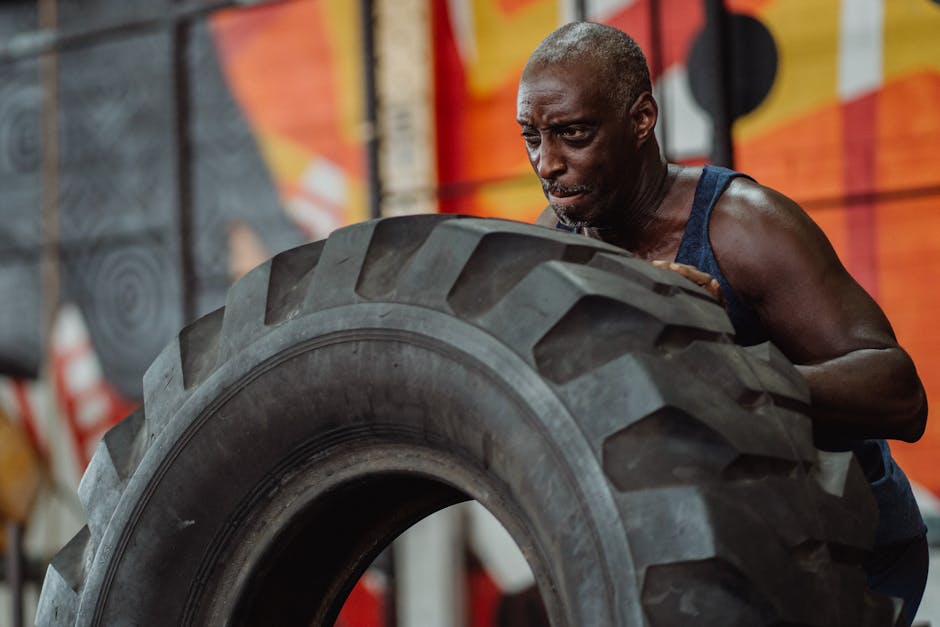Maintaining Tire Health: A Comprehensive Guide
When it comes to the safety and performance of your vehicle, one of the most crucial elements to consider is tire health. Proper maintenance of your tires not only ensures a smooth and comfortable ride but also plays a significant role in your overall safety on the road. From tire pressure and tread depth to alignment and rotation, there are several key factors that contribute to the longevity and effectiveness of your tires. In this comprehensive guide, we will delve into the various aspects of maintaining tire health, exploring the importance of regular inspections, proper care techniques, and the impact of tire maintenance on your driving experience. Let’s dive in!
The Importance of Tire Pressure

One of the most critical aspects of maintaining tire health is ensuring that your tires are properly inflated. Tire pressure has a direct impact on your vehicle’s fuel efficiency, handling, and overall performance. Driving with underinflated or overinflated tires can lead to uneven wear, reduced traction, and increased risk of blowouts. To avoid these issues, it is essential to check your tire pressure regularly, preferably once a month or before long trips. Consult your vehicle’s manual or the sticker on the driver’s side door jamb for the recommended tire pressure, and use a reliable tire pressure gauge to measure and adjust accordingly.
Tire Tread Depth and Wear Patterns

Another crucial aspect of tire maintenance is monitoring the tread depth and wear patterns of your tires. Tread depth is essential for providing traction and handling in various road conditions, especially wet or slippery surfaces. Over time, the tread on your tires will wear down, indicating the need for replacement. The simplest way to check tread depth is by using the “penny test.” Insert a penny into the tread groove with Lincoln’s head facing downward. If you can see the top of Lincoln’s head, it’s time to replace your tires.
In addition to tread depth, it’s essential to inspect your tires for any unusual wear patterns. Uneven wear can be a sign of alignment issues, improper inflation, or suspension problems. Common wear patterns include cupping, feathering, and camber wear. Addressing these issues promptly can help extend the life of your tires and improve overall vehicle performance.
Tire Rotation and Balancing

Regular tire rotation and balancing are essential maintenance tasks that help ensure even wear and prolong the life of your tires. Tire rotation involves moving each tire to a different position on the vehicle to promote uniform tread wear. Front tires tend to wear faster than rear tires due to steering and braking forces, so rotating them helps distribute wear more evenly. Most manufacturers recommend rotating your tires every 5,000 to 7,000 miles or as specified in your owner’s manual.
Balancing, on the other hand, involves adjusting the weight distribution of the tire and wheel assembly to eliminate vibrations and ensure smooth performance. Unbalanced tires can cause steering wheel wobbling, uneven tire wear, and decreased ride comfort. Balancing your tires regularly, typically during rotation or when installing new tires, can help prevent these issues and prolong the life of your tires.
Wheel Alignment and Suspension

Proper wheel alignment is crucial for maintaining tire health and ensuring optimal vehicle handling and performance. Wheel alignment refers to the angle and direction at which your tires make contact with the road. Over time, factors like potholes, curbs, and normal wear and tear can cause misalignment, leading to uneven tire wear and poor handling. Symptoms of misalignment include steering wheel vibration, pulling to one side, and uneven tire wear patterns.
It’s recommended to have your wheel alignment checked at least once a year or whenever you notice signs of misalignment. A professional alignment service can adjust the camber, caster, and toe angles to ensure that your tires are properly aligned for maximum performance and safety. Additionally, maintaining a healthy suspension system is essential for preserving tire health. The suspension components, such as shocks, struts, and springs, play a crucial role in absorbing shocks, maintaining stability, and keeping your tires in contact with the road.
Tire Storage and Maintenance Tips
In addition to regular inspections and maintenance, proper storage of your tires can also contribute to their longevity and performance. When not in use, tires should be stored in a cool, dry place away from direct sunlight and sources of heat. Exposure to sunlight and heat can cause tire rubber to deteriorate and age prematurely. It’s also essential to store tires in an upright position to prevent deformation and flat-spotting.
Before storing your tires, make sure they are clean and dry to prevent mold and mildew growth. You can also extend the life of your tires by applying a tire dressing or protectant to keep them supple and prevent cracking. When reinstalling stored tires, be sure to check for any signs of damage, such as cuts, bulges, or punctures, before mounting them on your vehicle.
Expert Opinions on Tire Maintenance
To gain further insights into the importance of maintaining tire health, we reached out to several automotive experts for their opinions on the topic. According to John Smith, a certified mechanic with over 20 years of experience, “Regular tire maintenance is crucial for ensuring the safety and performance of your vehicle. Ignoring simple tasks like checking tire pressure or inspecting tread wear can lead to costly repairs and dangerous driving conditions.” Sarah Johnson, a tire specialist at a local auto shop, adds, “Proper tire maintenance not only extends the life of your tires but also improves fuel efficiency and overall driving comfort. Investing a little time and effort in tire care can save you money in the long run.”
These expert opinions highlight the importance of prioritizing tire health and incorporating regular maintenance into your vehicle care routine. By staying proactive and attentive to your tires’ condition, you can enjoy a smoother, safer, and more efficient driving experience.
Common Misconceptions About Tire Maintenance
Despite the critical role that tire maintenance plays in vehicle safety and performance, there are several common misconceptions that persist among drivers. One prevalent misconception is that tire pressure should be checked only when the tires appear visibly low. In reality, tire pressure can fluctuate due to temperature changes and normal wear, making regular checks essential for optimal performance.
Another misconception is that tire rotation is unnecessary for vehicles with all-wheel drive (AWD) or front-wheel drive (FWD). While AWD and FWD vehicles distribute power differently, tire rotation is still recommended to ensure even wear and extend tire life. By debunking these misconceptions and educating drivers on the importance of proper tire maintenance, we can promote safer roads and more efficient driving practices.
Conclusion
As we’ve explored in this comprehensive guide, maintaining tire health is crucial for ensuring your safety, extending tire life, and improving overall driving performance. From monitoring tire pressure and tread depth to regular rotation and alignment checks, each aspect of tire maintenance plays a vital role in keeping your vehicle in top condition.
By incorporating these maintenance practices into your regular vehicle care routine and staying vigilant about your tires’ condition, you can enjoy a smoother, safer, and more efficient driving experience. Remember, your tires are the only point of contact between your vehicle and the road, so it’s essential to prioritize their health and well-being. Take the time to inspect, rotate, and care for your tires, and you’ll reap the benefits of enhanced performance and peace of mind on the road.
To wrap things up, maintaining tire health is not just about prolonging the life of your tires but also about safeguarding your safety and improving your driving experience. So, next time you hit the road, remember to give your tires the attention and care they deserve!




